They say there’s no telling what the future holds for anyone, but that’s not quite true. With the new year now upon us, there’s one thing we can be sure of: there’s no way in hell we’re sticking to our New Year’s resolutions. Year after year, millions of us set goals and make promises about what we’re go to do or stop doing once the calendar turns over, only to abandon them in the days, weeks, and months that follow. Yet, for all the frustration that comes with the tradition, come midnight next December 31st, we’re back at it, telling ourselves that this year it will be different.
For all of our hubris and doomed striving, we might as well be characters in a crime movie.
Throughout the gangster picture old and new, in noirs and neo-noirs, from heist flicks to police procedurals, the crime film is as lousy with broken resolutions as it is broken bodies. And while our yearly commitments might not be as extreme as, say, a hitman or bank robber swearing “one last job, then I’m out…”, there’s still a lot we can glean from watching these shady characters and lost souls flail about as their own best laid plans go awry.
Without further ado, here are 9 broken resolutions from classic crime films.
(Warning: I resolved to avoid including spoilers, but, well, you know how it goes.)
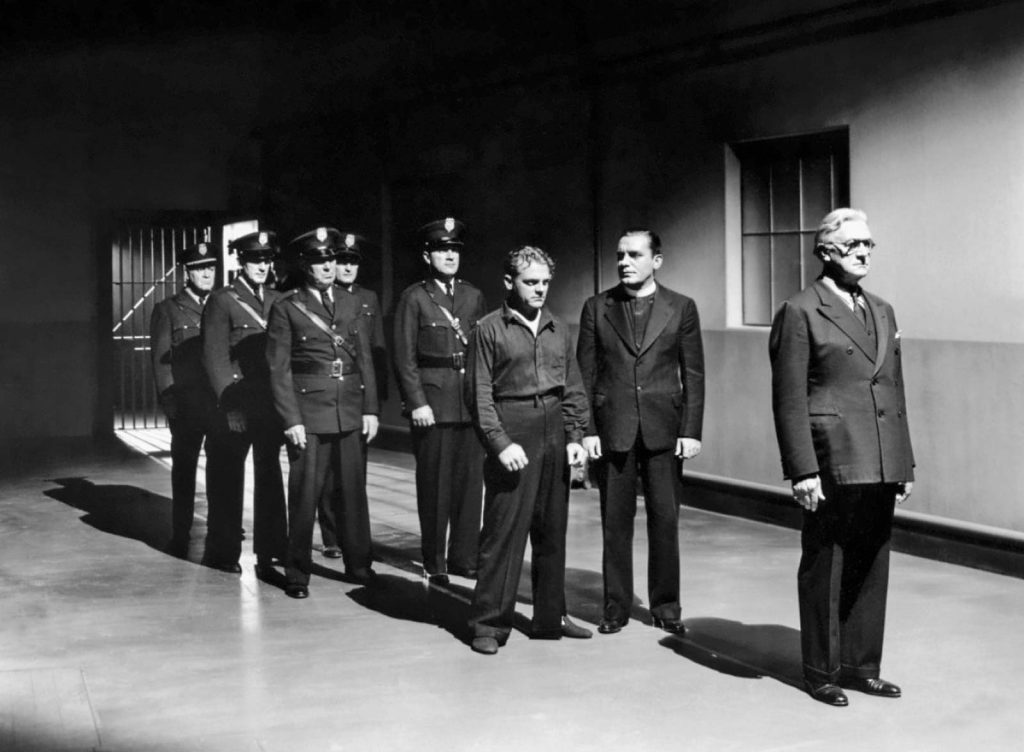
Angels with Dirty Faces (1938) – Another Rat Turned Yellow
Throughout Angels with Dirty Faces, we’ve watched as fearless gangster Rocky Sullivan (James Cagney) mows down everything and everyone that stands in his path without the slightest bit of remorse. Even when his criminal ways land him a date with the electric chair, Rocky promises to go out spitting in the eye of the law. But minutes before Rocky’s set to fry, his lifelong friend Jerry, now the neighborhood priest, begs him to sacrifice his pride—the one thing he has left—by faking fear and remorse. Only by dying yellow can Rocky disillusion all the street kids who look up to him and sway them from following in his footsteps. Rocky balks at the idea, but at the last moment, he acquiesces to his friend’s request, crying and squirming and begging for his life in front of dozens of witnesses and the press. It’s a noble sacrifice disguised as an ignoble end, and the rare case of someone going against their code for the right reasons.
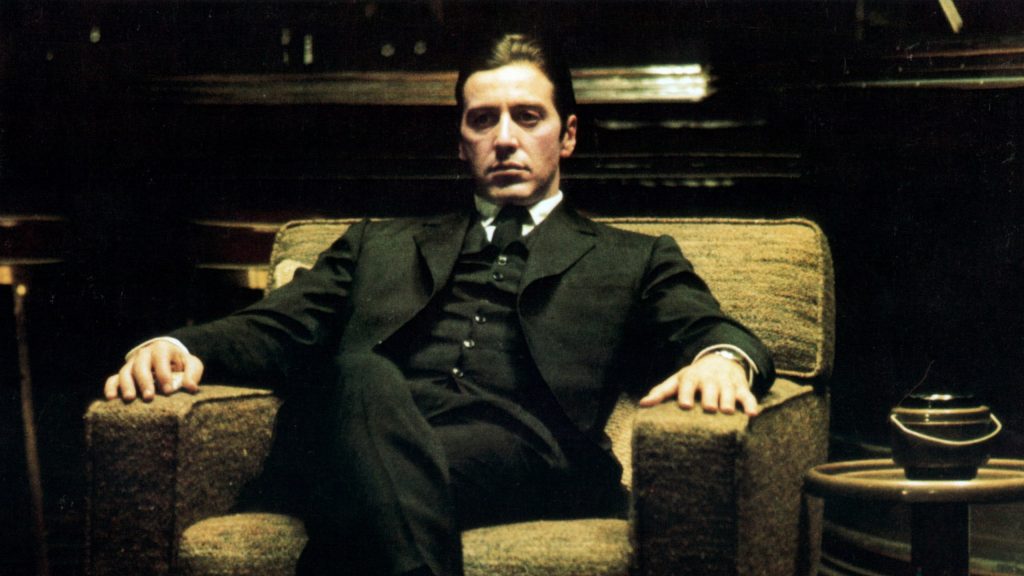
The Godfather – Going Legit
You can draw a straight line from Warner Brothers’ classic gangster movies of the 1930s to Francis Ford Coppola’s culture defining Godfather saga of four decades later. Like Angels with Dirty Faces, the story of The Godfather is a morality play, albeit one that moves in the opposite direction. When Michael Corleone (Al Pacino) joins his family’s criminal business enterprise, he justifies his decision by declaring, “In five years, the Corleone family is going to be completely legitimate.” Instead, as the business grows more all-consuming and corrupt, not only is Michael compelled to break his vow, he ends up destroying his family altogether.

Scarface (1983) – The Two Lessons
Ten years after The Godfather, Brian De Palma worked with Pacino to further expand the scope of the gangster picture, while also taking it back to its roots with this gaudy remake of the pre-code classic. Cuban kingpin Tony Montana scales the organized crime mountain by adhering to the two lessons taught to him by his mentor: 1. Don’t underestimate the other guy’s greed. 2. Don’t get high on your own supply. Needless to say, he forgets both lessons, resulting in betrayal and addiction and a downfall that is as over the top as he is larger than life. In the years since its initial release, Scarface went from being a big-budget misfire to an iconic favorite, thanks in large part to its reception in the hip-hop community. Rapper Biggie Smalls would take lesson number two—”Don’t get high on your own supply”—and turn it into a lyrical refrain, one by which many a dope dealer abides today.
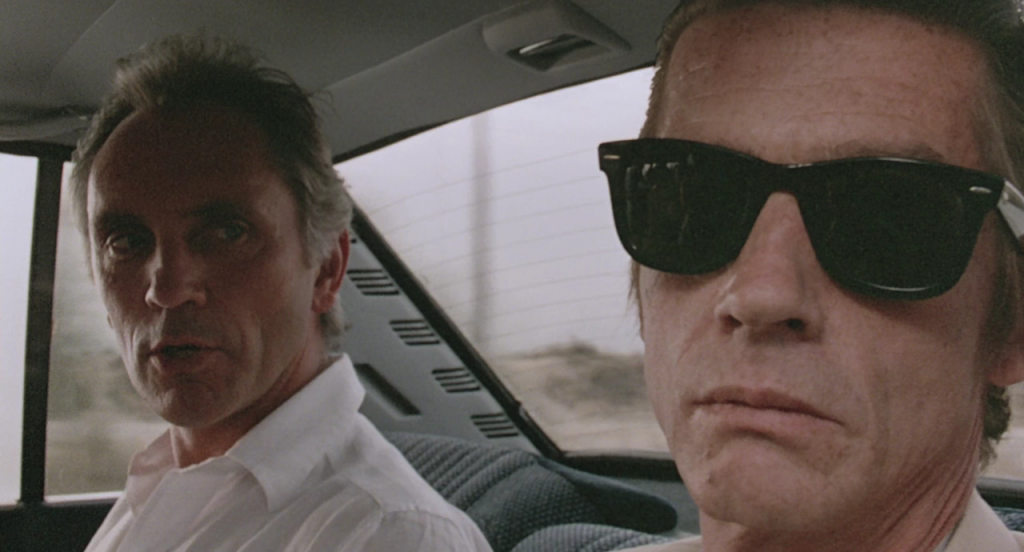
The Hit (1983) – Death Be Not Proud
Moving across the pond, we come to Stephen Frear’s moody, meditative road crime film The Hit. In it, a pair of British hitmen (John Hurt and Tim Roth) kidnap Willie Parker (Terrance Stamp), a former London gangster turned fink hiding out in Spain, with orders to transport him to France for execution. Rather than fight or flee, Willie, who’s spent the past decade making peace with his mortality, accepts and even embraces his fate, much to the amazement of his disillusioned captor. Willie remains unflappable right up until the moment of truth, when all of his Zen-like cool drops away and he’s revealed to be just as frightened of death as any of us. He belligerently demands more time before attempting to flee, earning a bullet in his back all the same. Much like Rocky in Angels with Dirty Faces, Willie dies yellow, only here it’s no act.
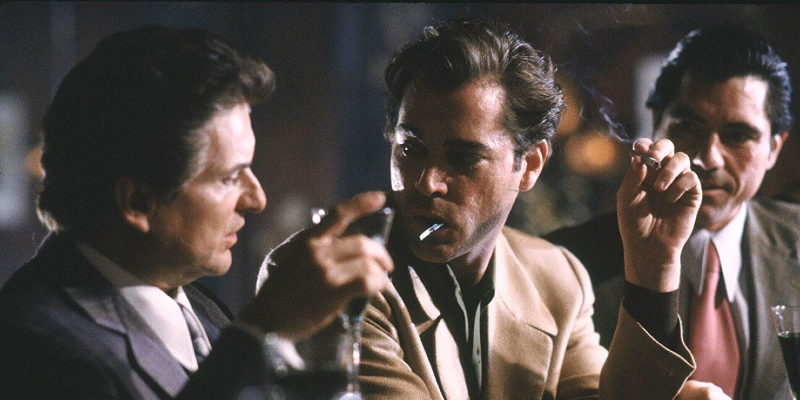
Goodfellas (1990) – The Two Greatest Things in Life
Early on in Goodfellas, nascent gangster Henry Hill learns “the two greatest things in life: never rat on your friends and always keep your mouth shut.” Then, for the remainder of the film, we watch as he and his middle-class mobster cohorts continually betray this code along with one another, until Hill eventually turns full rat. No filmmaker has so thoroughly explored the divide between the gangster’s self-image and their true nature as Martin Scorsese, and it’s a wonder that so many viewers still revel in the bullshit bromides espoused by these characters* at the start of this film, considering where they all end up.
*(A cursory Google search for the above-quoted line reveals its preponderance among merch and memes, as if it’s the actual moral of story.)
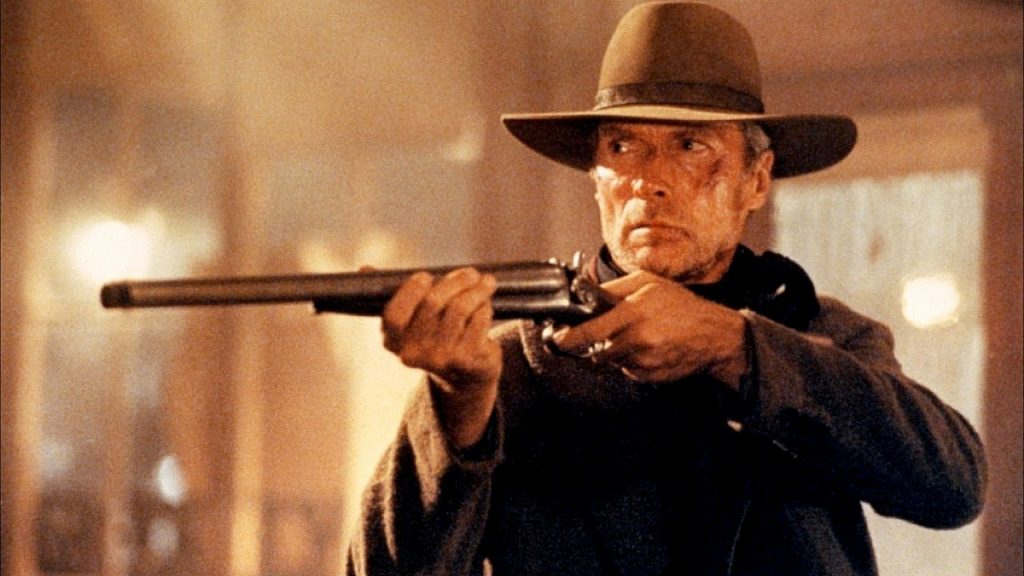
Unforgiven – No New Starts
Clint Eastwood’s Unforgiven is a ferocious dramatization of F. Scott Fitzgerald’s line about there being no seconds acts in American lives. Eastwood’s William Munny—a recovering alcoholic and retired gunslinger turned soft-spoken widower and father—pretends to be a changed man even after embarking on a new murder-for-hire job, telling his partner, “Just cause we’re going on this killing, that don’t mean I’m gonna go back to being the way I was. Just need the money, get a new start for them youngsters.” But by the end of his journey, the façade drops away, and the old Munny—the whiskey-slugging killer of women and children and “just about everything that’s walked or crawled at one time or another”—is reborn as the angel of death. There may be no second acts, but there sure as hell are final ones.
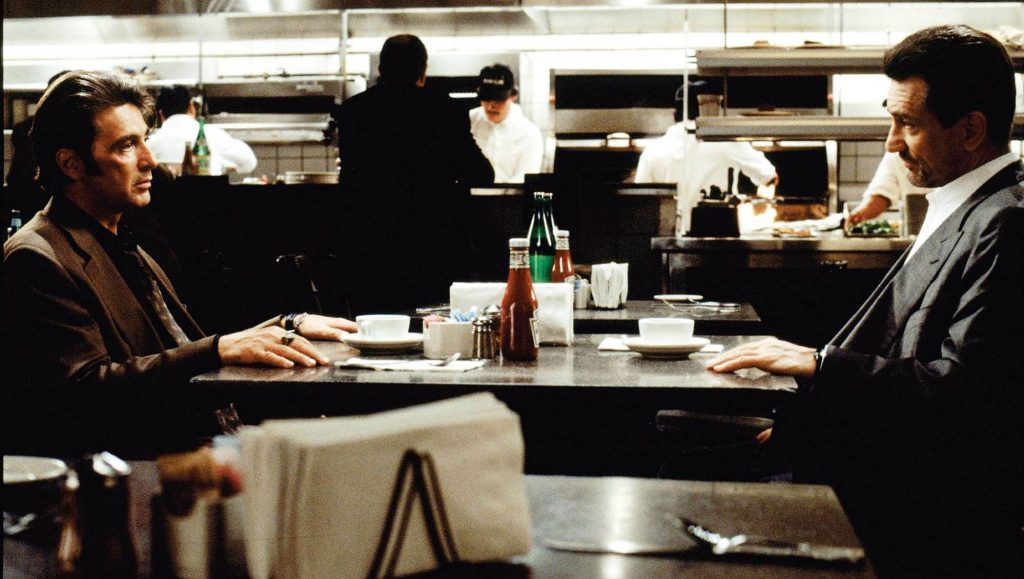
Heat – The 30 Second Rule
In Heat, Michael Mann’s L.A. opus about a team of professional bank robbers and the elite police unit determined to stop them, criminal mastermind Neil McCauley (Robert De Niro) lives and operates by one simple rule: “Don’t let yourself get attached to anything you are not willing to walk out on in thirty second flat if you feel the heat around the corner.” Adhering to this creed has kept him alive and out of prison, but after he falls for a beautiful young woman, he begins having second thoughts. Even as the police and an assortment of enemies begin closing in around him, he finds he’s willing to risk it all for love—and vengeance. Mann has long been obsessed with the limits of individual professionalism, with Heat being his ultimate statement on the subject. (He doubles down on this theme by also including a subplot about an ex-con resolving to go straight for the love of a good woman. Inevitably, that story concludes with the con’s brains splattered on the windshield of a getaway car.)

L.A. Confidential – “I don’t need to do it the way you did.”
When we’re first introduced to L.A.P.D. Sgt. Edmund Exley (Guy Pearce) in Curtis Hanson’s brilliant adaptation of James Ellroy’s epic 1950s police procedural, he’s just aced the lieutenant’s exam and declared his intent to join the detective bureau, despite the protestations of his mentor, Captain Dudley Smith (James Cromwell). Smith doesn’t believe the goody-two-shoes Exley has the stomach to be a detective, since the job often necessitates taking extralegal measures—planting evidence, beating suspects, even shooting hardened criminals in the back—in order to see justice done. Exley swears that he doesn’t need to do the job that way, but after he uncovers a vast criminal conspiracy existing within the heart of the department, he will have done all of it, including putting a bullet in the back of none other than Smith himself.

The Pledge – A Promise Is Supposed to Mean Something
Sean Penn’s third directorial effort is an overlooked gem and a fitting cap to this list. Jack Nicholson plays a veteran homicide detective who, against his better judgement, makes a promise to the mother of a young murder victim that he will find her daughter’s killer. Even after the case is officially closed and he retires, he’s haunted by the knowledge that the murderer is still out there, and he embarks on a terrifying—and ultimately futile—investigation to prove it. The Pledge never quite reaches the heights of later enigmatic masterpieces Memories of Murder or Zodiac, but it’s a similarly chilling look at the debilitating psychological effects of unrequited infatuation, as well as a nightmarish tale about what happens when someone fails to keep their promise.

















